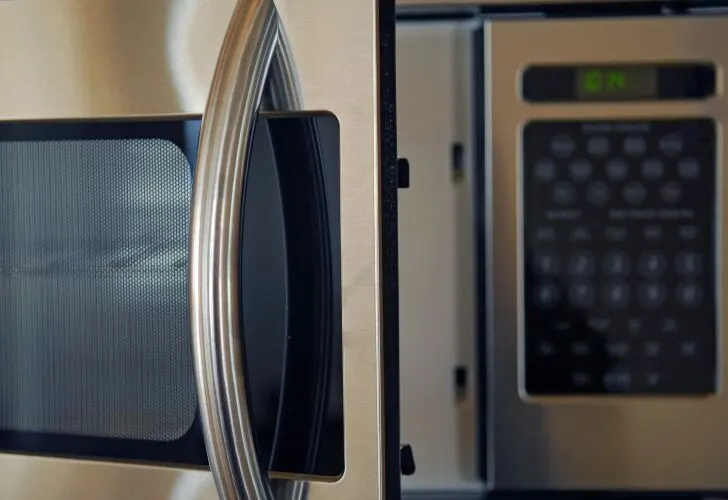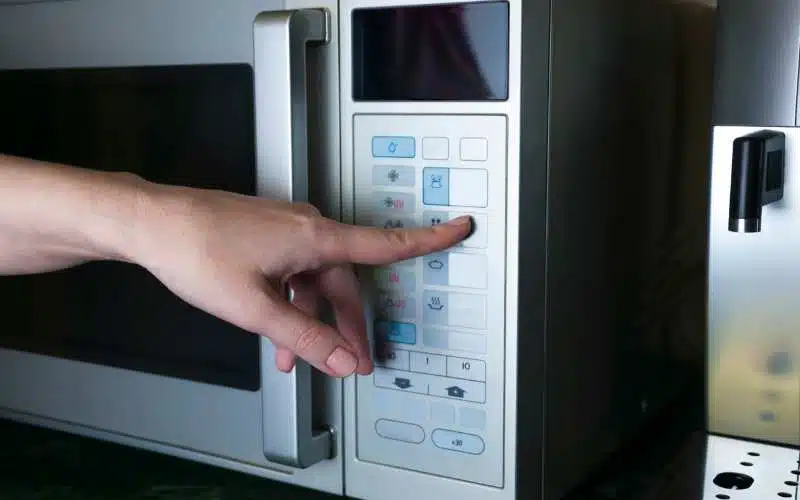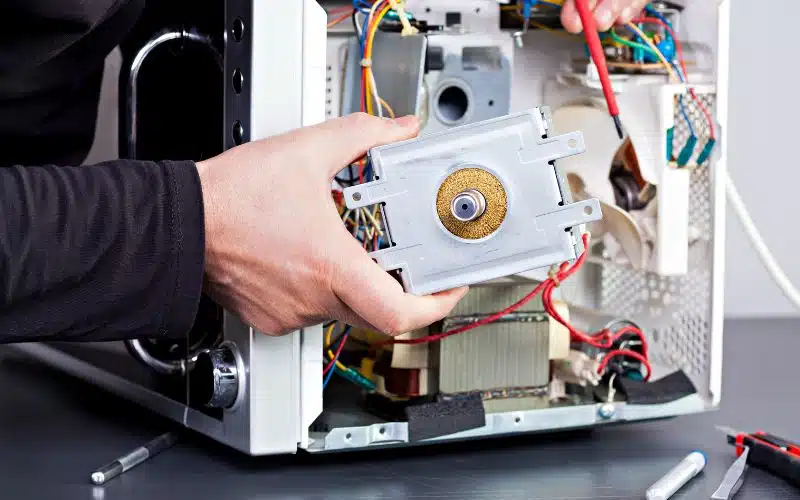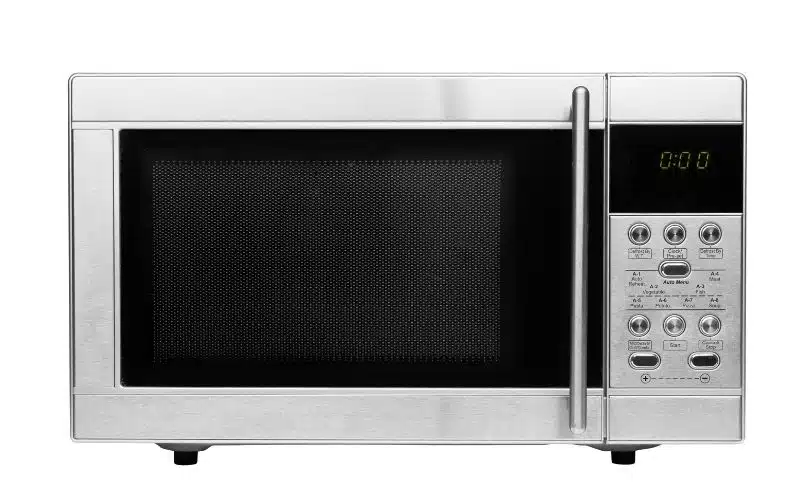We all grew up with parents making us turn off and unplug electrical appliances when a thunderstorm was approaching.
It was typical to grumble during such situations because it was annoying to put off the TV, especially.
However, you might be a parent or just grown up, and like a reflex reaction, you unplug your appliances when there’s a thunderstorm.
Curiosity about why you must unplug your electrical appliances has led you here.
No! It is risky and not advisable to use a microwave during a thunderstorm. A lightning strike during a thunderstorm could result in a power surge, and the nature of your microwave may result in a disaster. Not only will your microwave suffer damage, but it could also turn into a fire outbreak.
If you’re dealing with grumbling children of your own and have decided to understand why you shouldn’t use appliances during a thunderstorm, you’re in good hands here.
In this article, we will satisfy your curiosity about why you shouldn’t use electrical appliances such as the microwave during a thunderstorm.
Can I Use a Microwave During a Thunderstorm?

It would be best if you didn’t use a microwave during a thunderstorm because it is not safe for both you and the appliance.
Lightning strikes are typical when there’s a thunderstorm, and these strikes can easily pass through electrical systems.
When lightning travels through an electrical system via an electrical pole, it gets to the plugged appliances in the house.
Generally, electrical appliances are built to contain a limited amount of current; anything above its limit can prove fatal.
Lightning strikes induce an electrical surge higher than your appliance can contain.
Therefore, you risk getting electrocuted if your microwave is plugged in or used when lightning bursts through the power line.
The current your microwave can contain has been exceeded, making it unsafe for use at that time.
Additionally, such powerful electrical surges when an appliance is being used could result in a fire outbreak.
Follow up on the news whenever there’s a thunderstorm warning, and unplug your appliances before it hits.
Put the switch off immediately if you experience a thunderstorm with no prior warning and you plugged in your microwave. Ensure you don’t touch it until the storm passes.
It is dangerous to risk unplugging your electrical appliance during a thunderstorm. What’s even worse is using these appliances when a thunderstorm is ongoing.
There’s no safety guarantee if you go against simple instructions and use your microwave during a thunderstorm.
Moreover, there have been multiple reports of loss of lives and property due to the abnormal power surge during thunderstorms.
These unfortunate occurrences result from ignorance in handling electrical appliances during a thunderstorm.
It is advisable to avoid such accidents in your home by educating your family on the risks involved.
Can a Thunderstorm Destroy My Microwave?
A thunderstorm can destroy your microwave only if you leave it plugged in. When lightning strikes and passes through power lines, it can only get transferred if an appliance is connected.
Therefore, leaving your microwave or any other appliance connected to the socket receives the lighting charge.
The electrical surge from the lightning strike is relatively higher than what the microwave can conduct.
If you leave the microwave plugged in, it’ll receive a high flow of electric current, damaging it.
However, once it’s not connected to an electrical outlet, there’s no means for the electrical charge to travel.
It doesn’t necessarily mean that every plugged-in microwave during a thunderstorm gets damaged. The microwave can withstand the high power surge to a certain level.
In extreme cases, just a few microwave parts get affected, and you can easily replace such parts.
However, your microwave will suffer severe damage during a thunderstorm in rare cases of extremely high and abnormal power surges.
Switching off and unplugging all electrical appliances during a thunderstorm is best to avoid damaging them.
Should I Unplug All My Electronics During a Thunderstorm?
Unplug your electronic devices before a thunderstorm, as it is relatively risky to attempt to unplug your appliances during a storm.
Especially because You can’t tell how much current your appliance has accumulated during a thunderstorm.
Therefore, any attempt to unplug such a device during a thunderstorm can lead to electrocution. In addition, leaving an appliance plugged in is dangerous not only to you but to the device also.
You ought to observe whenever there’s a thunderstorm threat so you can take action before it hits.
It’s always easier to follow the weather forecast, so you’ll be sure and protect yourself and your property against it.
All your electronics should be unplugged before a thunderstorm hits, as leaving them plugged in could damage them. However, do not attempt to unplug any appliance during a thunderstorm.
Overall, here are the things you should do and avoid doing during a thunderstorm:
| Do’s | Don’ts |
|---|---|
| Use surge protectors and automatic voltage regulators. | Refrain from unplugging appliances during the storm. |
| Unplug appliances before the thunderstorm. | Stay away from electrical outlets and devices. |
| Keep yourself updated on the weather with your phone. | Avoid plumbing pipes and metal objects. |
| Keep a flashlight, and first-aid kit, as emergency supplies like those, are handy. | Wait to shower or use water after the storm passes. |
The abovementioned are basic precautions you should take before and during a thunderstorm. They will come in handy to keep you and your appliances safe from the storm.
Note that electronics like your computer, laptop, or smart TV should be your priority to safeguard before a storm.
These electronics contain smart chips and can easily get damaged with a little power surge. Appliances such as your microwave, refrigerator, and toasters are less liable to suffer fatal damage.
FAQ
#1. What Appliance Can You Leave on During a Thunderstorm?
None, all appliances must be turned off and unplugged before a thunderstorm.
#2. Are Gas Appliances Safe to Use During a Thunderstorm?
No! Even gas appliances stand the risk of conducting electric current from lightning strikes.
#3. Why Is It Advisable to Avoid Water During a Thunderstorm?
Lightning strikes can readily travel through plumbing pipes because water is a conductor of electricity.
Conclusion
Avoid using a microwave or other home appliances during a thunderstorm, as electrocution can lead to death. Likewise, abnormal power surges can cause property damage.
Ensure to put off your main home switch if there’s any, and unplug all electronics before a thunderstorm.
References:





